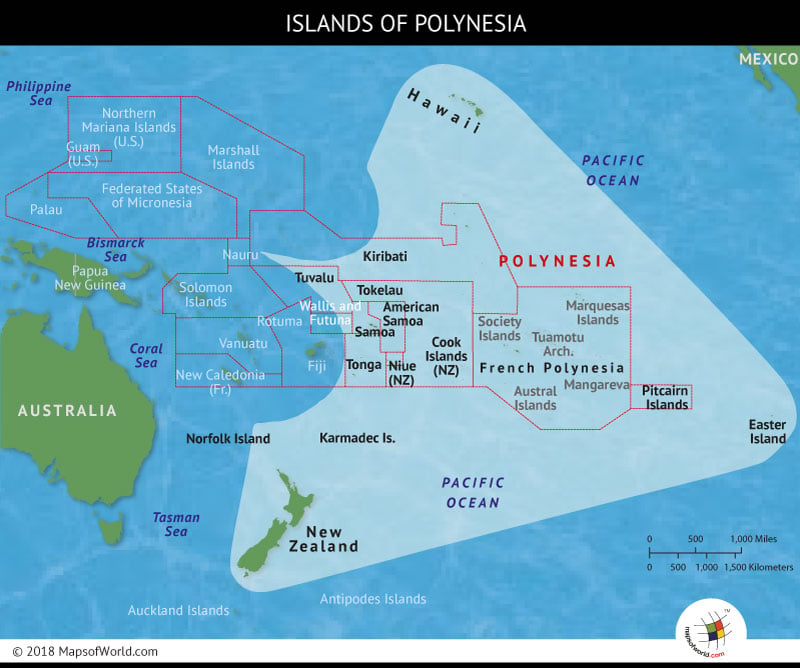

The sub-region of Oceania – Polynesia is often thought of as a paradise, but in actuality, it’s been a place that has had difficulty thriving.
Prior to colonial expansions, when indigenous people were inhabiting the western regions of Polynesia, about 3,000 years ago, the environment was not suitable for easy survival. It is accepted that the early inhabitants brought their own subsistence items like plants and animals when moving to the islands, which influenced the early Polynesian culture. Present Polynesia and the contemporary lifestyle are a direct reflection of colonial contact that occurred in the region during the 18th century.
Oceania is divided into three cultural terms: Polynesia, Micronesia, and Melanesia. ‘Polynesia’ refers to the area comprising small islands scattered over the central and southern Pacific Ocean, covering 118,000 square miles of land. It encompasses a triangular region, commonly known as the ‘Polynesian Triangle’ which has its northern vertex near the Hawaiian Islands, connecting New Zealand and Rapa Nui (Easter Island) on the other ends. Similar to Hawaii, most of the islands are archipelagos including Samoa, Tokelau, Niue, Wallis and Futuna, the Cook Islands, Tuvalu, and French Polynesia. The Solomon Islands, Papua New Guinea, the Caroline Islands, and Vanuatu are the other smaller settlements in the region.
In 1756 the term ‘Polynesia’ was first used by Charles de Brosses, a French writer. Since the islands were historically referred to as the ‘South Sea Islands,’ people living here are often called ‘South Sea Islanders.’ The islands might be separated by thousands of miles, but the inhabitants of the region share similar cultural and traditional heritage. The Polynesian languages spoken are quite alike as well, with most having the same usage of vowels but different consonants.
It is believed that settlements in New Zealand occurred only in 1200 CE, whereas some of the islands like Fiji and Tonga settled much earlier. The ancient culture does not persist, as it was revolutionized in the 18th century during European exploration. Under the Treaty of Waitangi signed in 1840, New Zealand came under the colonial power of Britain. France, Germany, New Zealand, the United States, and Chile also annexed numerous parts of Polynesia.
Decolonization began after the end of World War II. In 1962, Samoa became the first sovereign country to gain independence from New Zealand. Tonga, Tahiti, and Hawaii turned into monarchies, and French Polynesia remains a nuclear test site.
The culture of Polynesia continues to evolve, but the economy in most islands is boosted only with the help of foreign aid and remittance from people living abroad. Tourism plays a pivotal role in the development of the sub-region, but the whole of Polynesia does not have good exposure currently.
Know more:
Related maps:
The Republic of Madagascar is an island country located in the Indian Ocean, off the…
The Euro is the official currency of the European Union. It is, however, not incumbent…
There are many countries or regions that are partially recognized by the UN, have disputes…
The Alaska Statehood Act was signed into law by President Dwight D. Eisenhower in 1958,…
The name Persia may, however, only be used to refer to Iran in some contexts.…
Hawaii is an Island State in the US. It is one of the 50 states…